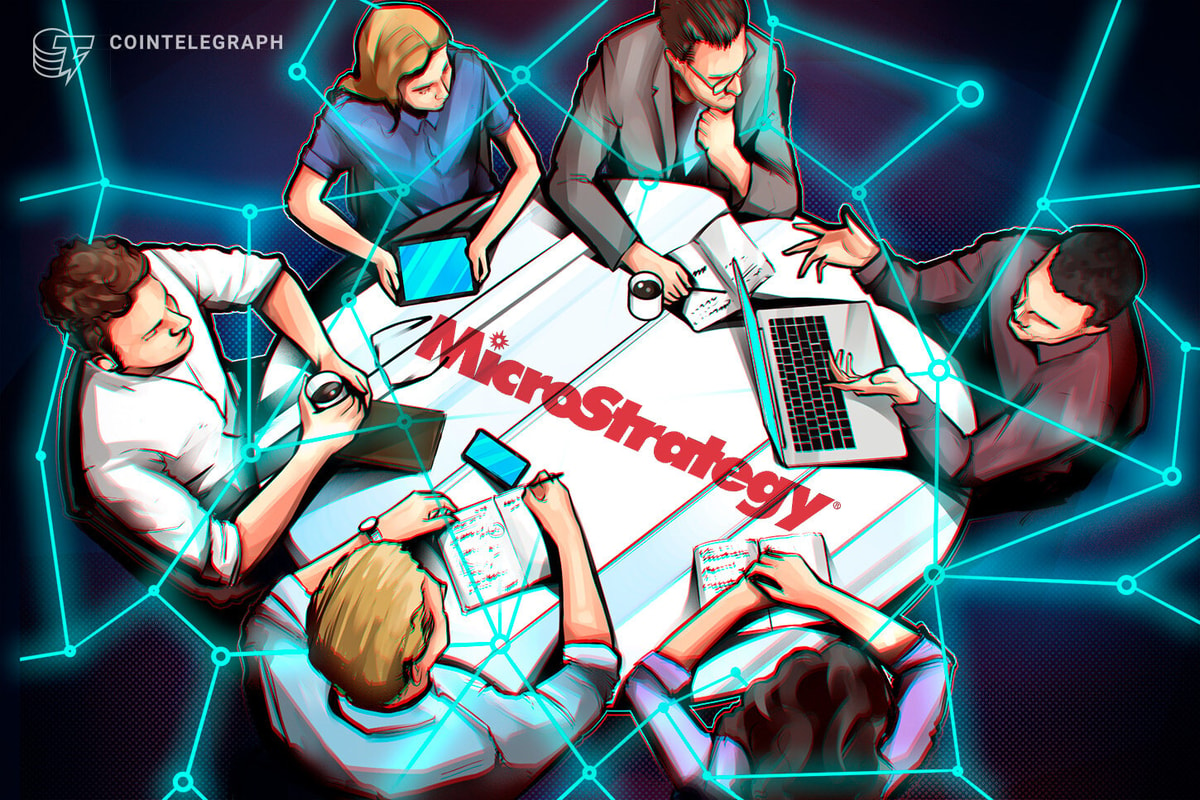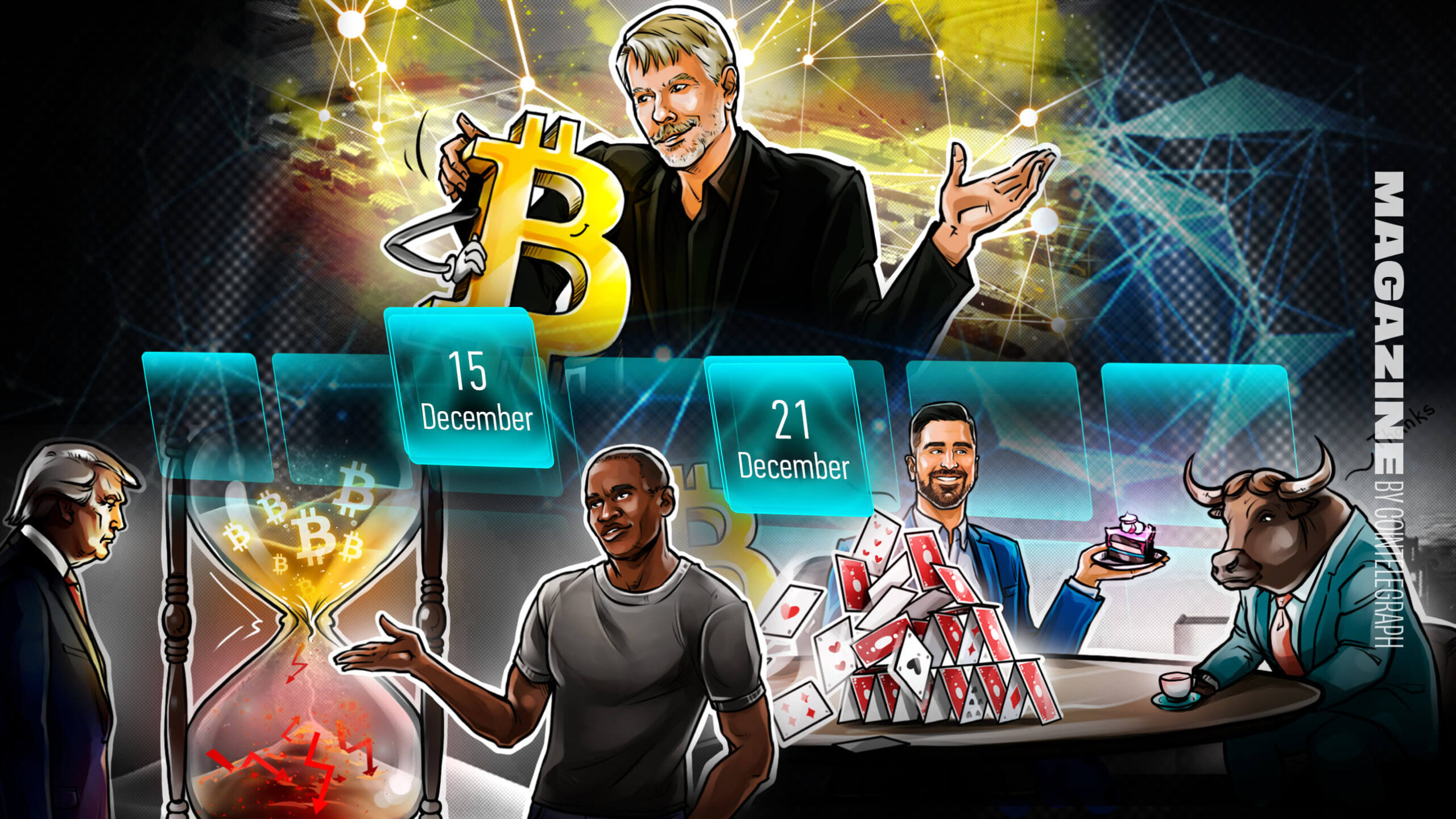Memes are crypto distilled to its essence: social trends, wry humor and the lure of ridiculous profits all wrapped up in a token that doesn’t do anything. It’s not for Warren Buffett, but it is for a huge range of ordinary people looking for fun, community and a lottery ticket out of the backwater they live in.
“The meme is the alpha,” says Danny Yang, founder of OnChainMonkey, referring to the insane returns against other metrics. Memecoins gamify the investment process as investors swoop in to follow intangible trends from election results or jump on the latest coin minted 10 minutes after the UnitedHealthcare CEO shooting suspect was arrested. Very 4Chan-esque.
Building communities, social bonds and having fun are all part of the attraction of memecoins. “Humans are social creatures, and memes are about people who find entertainment in the same thing,” Yang says.
“The meme itself is irrelevant. It’s a social game that needs lots of players who judge the meme by how many people might want to play that game.”
But apart from good dumb fun and the chance to make money, what are the real use cases for useless memecoins?
 PNUT was struck down but became more powerful as a memecoin. (Elon Musk, X)
PNUT was struck down but became more powerful as a memecoin. (Elon Musk, X)Use case 1: Bypassing US securities laws
First and foremost, let’s clear something up — the uselessness of memecoins is itself a particular use case. They get around the US securities regulations that squashed the ICO boom. In addition, memecoins specifically aren’t captured by the Australian Securities and Investment Commission’s proposed expanded crypto powers. How could they be? They don’t do anything.
“It’s actually safer to release a memecoin today with no use case, than it is to launch a token that’s useful,” wrote a16z Crypto managing partner Chris Dixon.
US securities law focuses on the Howey test to determine what constitutes an investment contract. Memecoins, which don’t represent anything more than an idea and do not promise any returns derived from the efforts of others, are not captured by the test. This regulatory friendliness has seen memecoins propagate like wildfires during the Great War on Crypto (2022–2024).
Memecoins were the biggest crypto narrative of 2024, accounting for 14.3% of the market share on CoinGecko in Q2. Will they fade out now that Donald Trump is the incoming president and presumptive new SEC boss Paul Atkins may allow “real” projects to raise money again via something like Hester Peirce’s 2020 “safe harbor” proposal?
2. Speculating on politics
In a world where people use technology to create the social bonds they used to experience in person, memecoins allow holders to participate in and capture the political zeitgeist. Memecoins have been created in support of and opposition to both candidates in the US presidential election.
 Memecoins are for everyone, even Gary Gensler. (X)
Memecoins are for everyone, even Gary Gensler. (X)Argentina’s libertarian president, Javier Milei, also has a memecoin dedicated to his reforms. The social utility of allowing people to express their political views monetarily could be seen as a parallel to text-to-donate efforts run by major campaigns.
However, social engagement or utility should be better understood as capturing the “zeitgeist,” argues Daniel Drescher, vice president of business development at Sal’Ad Labs, an influencer-for-hire agency. He tells Magazine that Trump’s new best friend and future Department of Government Efficiency (DOGE) boss, Elon Musk, is a prime example.
“How did Dogecoin become the gold standard in this uncertain realm of Web3? They have perhaps the most powerful influencer or KOL of all time — the undefeated richest man in the world, Elon Musk. He is the inspiration for Iron Man. He is, for Ayn Rand lovers, the godlike John Galt who invented a motor to give enough power to illuminate the entire world.”
Drescher prefers to think of memecoins as “brandcoins.” Often, they need a key opinion leader or a personality cult to power that coin. Successful memecoins all have “ardent followers who live and die by it. It makes them get up in the morning.”
The zeitgeist analogy resonates. For example, Kamala Harris memes surged when then-presidential candidate Joe Biden tripped on a staircase, and was soon after removed by the Democratic party as its nominee.
 Political memecoins poll well. (CoinMarketCap)
Political memecoins poll well. (CoinMarketCap)3. Charitable trojan horses for Doge rescues
Memecoins can be Trojan horses for financing more meaningful projects, such as raising money for charity, launching a casino like Iggy Azalea’s Motherland, or launching an exchange like ShibaSwap.
As Ethereum creator Vitalik Buterin — a man well known for donating memecoins to charity — wrote:
“Among the more interesting of the coins that I’ve seen are coins where a large portion of the token supply (or some ongoing fee mechanism) is dedicated to some kind of charity.”
“It feels like there is an unclaimed opportunity here to try to create something more positive-sum and long-lasting.”
The Neiro Foundation’s memecoin, NEIRO, is trying to become the next Dogecoin by blending utility and speculative upside.
The question is, which is the Trojan horse? The charitable utility or the speculative upside?
The memecoin is named after Neiro, a rescued Shiba Inu adopted by Atsuko Sato — the owner of the original “Doge,” Kabosu.
 Doge vs. Neiro. (X)
Doge vs. Neiro. (X)The Neiro Foundation is a collective effort to fund Shiba Inu dog rescues and wellbeing efforts globally, providing essential resources and financial support to dog shelters and charities that improve the lives of Shiba Inus. The dog breed is prone to several prevalent health issues, including hip dysplasia, eye conditions like glaucoma and cataracts, as well as progressive retinal atrophy.
SlumDOGE Millionaire gained public recognition after he turned $180,000 into over $3 million in DOGE, captured in the documentary This Not Financial Advice. He’s now the face of the coin and says, “While the rising popularity of memecoins has drawn plenty of skepticism, many critics overlook the fact that some of these memecoins have clear, positive mandates.”
“Beyond the viral humor, certain memecoins support charitable initiatives, and as a result, receive fervent community backing. The best memecoins are underpinned by strong narratives that resonate with a growing breed of socially conscious Web3 users, while demonstrating the huge potential for DeFi to drive philanthropy.”
4. Funding the launch of AI agents
AI agents have the potential to be incredibly useful. Think of an AI agent that can automatically rebalance your crypto portfolio so that profits are automatically moved into quality coins like Bitcoin, Ether and SOL so you don’t end up holding a bag of 90% shitcoins.
 Sometimes it’s hard to tell the difference between bots and humans. (X)
Sometimes it’s hard to tell the difference between bots and humans. (X)It seems likely that one day, AI agents might actually lead to autonomous DAOs. But for now, they are highly focused on the memecoin robo-trading end of the spectrum. Bots such as Truth Terminal engage with users on platforms like X, creating artificial hype and shilling for community participation and purchasing memecoins.
Look at Fartcoin, the AI-inspired memecoin that has surged to a $900 million market cap through the immutable comedy law that “hot air rises.” It’s fast catching up to another Truth Terminal shilled memecoin, GOAT.
The whole idea of autonomous AI agents launching memecoins is itself a bit of a meme, as many of the “AI agents” are just humans in disguise, and GOAT is human-made. However, the growing number of genuine agents highlights the potential.
Calanthia Mei, co-founder of Masa, says there’s a huge distinction between “intelligent AI agent memecoins and dumb memecoins.” Mei, who was previously a founding member of PayPal’s venture capital arm, talks about “memecoin sentience” — by which she means the crossover between AI and memecoins, where AI agents perform tasks, such as making a transaction.
“Beyond making money, the side effect of memecoins is to make tech cool. They shine a spotlight on technologies that only a small group of people cared about.”
Memecoins are helping fund and launch agents on Virtuals Protocol, where AI agents can be programmed to interact with tokenomic designs. It also allows for no-code AI agent building, tokenization and deployment, along with more sophisticated designs.
Mei’s company, Masa, is a “decentralized network of data miners” that provides real-time data for powering contextually aware AI agents utilizing retrieval-augmented generation (RAG) and relying on “emotional intelligence” based on pre-planned prompts. The agents can learn new things and gain new memories in real time, she tells Magazine.
So, in this context, these RAG-powered AI agents are equipped with dynamic data retrieval, emotional intelligence and memory capabilities, making them contextually aware and adaptive in real time.
 Mei is convinced AI agents are an unstoppable use case for trading. (X)
Mei is convinced AI agents are an unstoppable use case for trading. (X)Mei is certain that memes will accelerate the experimental nexus between AI and crypto. Since the GOAT story emerged, she has received “three times more inbound inquiries in the past few weeks for developing AI agents.”
“Think about it — creating intelligent AI agent memecoins that roam on Crypto Twitter, the home of crypto market sentiment. It’s an almost unstoppable investment thesis.”
5. Launching tokens fairly and without retail getting screwed by VCs
Retail crypto investors have been getting royally screwed by VCs for years. These investors get in early and snap up large amounts of the token supply for a fraction of the eventual market price. This results in ludicrously high fully diluted valuations, and retail investors lose out as the VCs dump tokens. It’s no wonder that users burned by unfair tokenomics turned to memecoins, which can be — though often aren’t — launched fairly.
“For some projects,” Masa’s Mei says, “memecoins provide much-needed financial resources to develop their tech, escaping frosty VC markets and Web3 echo chambers.”
During Murad Mahmudov’s viral Supercycle talk at Token2049, he argued that fully unlocked memecoins mean the tokenized meme is the actual product. There are no VCs and no lock-up periods. Not being able to value the asset, as it has no revenue, becomes an advantage.
Ultimately, memecoins are useful for a new type of funding vehicle, says Zhen Yu Yong, CEO of Web3Auth, a white-label wallet company that has built wallets for Trust Wallet, numerous Fortune 500 companies and has 20 million monthly users of its tech.
“Sure, most memecoins fail. But now, you can launch a tokenized project without a market maker that has a chance to succeed, without VCs and back room equity deals.”
This absence of VCs backing most memecoins is clearly part of the retail appeal. Degens who missed out on Bitcoin in 2010, or ETH or any of the other major coins, can get rich instantly without VCs in on the pre-pre-seed round screwing it up. It’s an ideological investment thesis— a degen’s dream.
In short, memecoins are like a cartoon version of an ICO without the pretense that someone might try to build and launch a product down the track.
 The most accurate meme created during the ICO era. (LinkedIn)
The most accurate meme created during the ICO era. (LinkedIn)Subscribe
The most engaging reads in blockchain. Delivered once a week.


Max Parasol
Max Parasol has worked as a crypto and AI researcher at the RMIT Blockchain Innovation Hub, as a lawyer, in private equity and was part of an early-stage crypto start up that was overly ambitious.
Follow the author @maxparasol

 3 days ago
3
3 days ago
3









 English (US) ·
English (US) ·